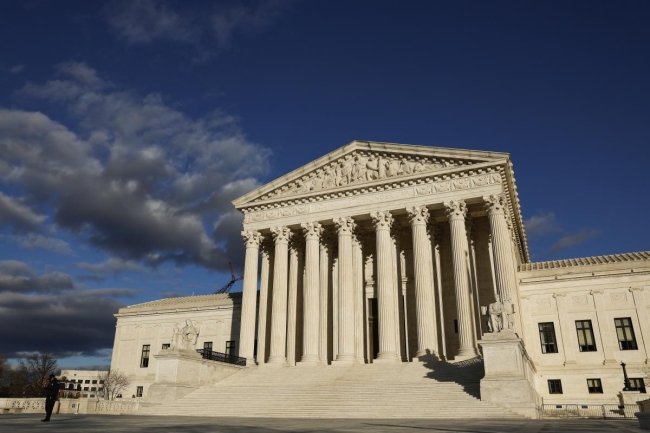From Tuesday’s determination by Judge Cecilia Altonaga in Foronda v. DeSantis (S.D. Fla.) (for more on the substantive Very first Amendment question, see these posts):
Plaintiffs are Florida inhabitants and taxpayers. They problem the validity of a invoice a short while ago handed by the Florida legislature and signed into regulation, Senate Monthly bill 4-C, that will allegedly “eliminat[e] a specific authorized status that lets Walt Disney Environment … to operate as an impartial federal government[,]” known as the “Reedy Creek Enhancement District[,]” in the Orlando region. Though Plaintiffs submitted suit in this District, the carry out at challenge and the functions are a lot more closely related to the Orlando location, and the Complaint’s caption treats this as a fit in the “Miami Division” of the “Middle District of Florida[.]” At the hazard of stating the evident, no these division exists, nor is the undersigned a judge in the Center District.
In whole, Plaintiffs assert four claims towards a few Defendants, Florida Governor Ron DeSantis, Florida Secretary of Condition Laurel Lee, and Florida Director of the Section of Earnings Jim Zingale. In Depend I, Plaintiffs allege that Senate Bill 4-C violates Florida’s Reedy Creek Improvement Act and “contractual obligations” the point out owes to Floridians (whilst the Complaint features no attached agreement). Depend II alleges that the invoice violates Florida Statute 213.015. Rely III seeks aid below part 1983 for violations of “Disney’s 1st Modification legal rights[.]” …
At minimum three jurisdictional defects compel dismissal of the Complaint.
Very first, the Courtroom lacks jurisdiction above Plaintiffs’ state-law statements. “Point out officers are immune from suit in federal court docket for promises arising below condition legislation simply because ‘it is difficult to feel of a increased intrusion on point out sovereignty than when a federal courtroom instructs point out officials on how to conform their conduct to state law.'” Alabama v. PCI Gaming Auth. (11th Cir. 2015) (quoting Pennhurst Point out Sch. & Hosp. v. Halderman (1984)). The Eleventh Modification bars these fits no matter if the plaintiff seeks damages or equitable reduction, and no matter whether or not the state officials’ alleged perform violates the U.S. Constitution in addition to violating point out legislation. This limitation on federal judicial authority is jurisdictional.
Next, the Courtroom lacks subject-matter jurisdiction in excess of Plaintiffs’ sole remaining claim for violation of Disney’s Initial Amendment legal rights. “[A] occasion usually may well assert only his or her possess legal rights and can’t elevate the statements of 3rd get-togethers not just before the courtroom.” A several narrow exceptions to this rule exist. To have third-celebration standing, (1) a plaintiff should “have endured an ‘injury in reality,’ giving him or her a ‘sufficiently concrete interest’ in the end result of the situation in dispute” (2) the plaintiff should have a close romantic relationship with the celebration whose right is currently being asserted and (3) some impediment prevents the 3rd party’s skill to secure its own rights. The “most essential justification for 3rd-occasion standing” is “the prospective dilution of the 3rd party’s legal rights” resulting from the 3rd party’s inability to assert its individual rights….
Plaintiffs do not plausibly allege they have endured any concrete personal injury as a result of the alleged violation of Disney’s Initial Amendment legal rights, and very little in the Criticism displays Plaintiffs have a close marriage with Disney. Even a lot more critically, Plaintiffs have not plausibly alleged that Disney faces any hindrance in asserting its own Initially Modification rights. Considerably from it: Plaintiffs expressly allege that they “expect Disney and the Condition of Florida to litigate this subject for a sizeable time period of time[.]” …
A different noteworthy exception to the general principle that a get together could not sue for violations of others’ constitutional legal rights applies in the 1st Modification context. But that exception relaxes conventional standing demands only when a litigant asserts a assert of Very first Modification overbreadth. Plaintiffs assert no such assert here. They rather allege what is in essence a Initially Modification retaliation declare on Disney’s behalf. And 1st Modification retaliation statements do not qualify for watered-down 3rd-occasion standing expectations.
Third, and at last, none of Plaintiffs’ promises is ripe.Senate Bill 4-C does not take influence until eventually July 1, 2022.When aplaintiff data files “a preenforcement, constitutional obstacle to a condition statute, the personal injury requirement may well be satisfied by establishing a realistic risk of sustaining direct injuries as a final result of the statute’s procedure or enforcement.”The plaintiffcan fulfill this requirementifsheis(1)”threatenedwithapplicationofthestatute(2)applicationislikelyor(3) there is a credible menace of application.”
Plaintiffs do not fulfill this regular. The challenged legislation does not use to them, they do not allege direct harm as a outcome of the challenged law, and they do not plausibly allege any credible danger of direct damage in the future. Plaintiffs’ concept of standing is that the elimination of the Reedy Creek Advancement District may possibly outcome in fiscal damage to Plaintiffs by advantage of a tax enhance that has not nonetheless been enacted. That indirect and remarkably speculative alleged harm simply cannot help federal jurisdiction. Senate Bill 4-C by itself will not elevate Plaintiffs’ taxes. Again—it is value emphasizing—the bill does not use to Plaintiffs at all….
Plaintiffs’ lawyer, William Sanchez, is jogging for the U.S. Senate. Thanks to the Media Legislation Useful resource Heart MediaLawDaily for the pointer.





More Stories
The English PROPHECY US DESTINY: The famous medium predicted the outcome of the match Serbia
Kyiv’s Mayor Warns Residents To Prepare For A Total Absence Of Electricity, Water, Drainage And Heat
Virginia Criminal Lawyer: Your Guide to Legal Representation in Virginia